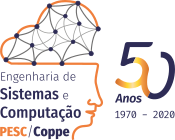Estratégias para o Desenvolvimento Sustentável e as Partes Interessadas
Authors:
Autores
| Person role | Person | |
|---|---|---|
|
7174 |
3148
|
Informations:
Pesc publication
A sustentabilidade como é um conceito sistêmico, deve estar relacionada com a continuidade dos recursos ambientais, sociais, corporativos e pessoais que sejam capazes de afetar a perenidade das organizações e de expressar seu maior potencial no presente e que, ao mesmo tempo, sejam preservados para atingir a excelência na manutenção indefinida de seus valores. A fonte de valor econômico e da riqueza não está mais na produção de bens materiais, mas na criação e manipulação de valores intangíveis.
A visão cronológica da gestão das organizações e suas relações com as Partes Interessadas deve evoluir na mesma medida em que a sociedade evolui através da mudança cultural, da história que se transforma; do modo de se ver a relação com o Planeta e todos os recursos finitos, muito além das questões agrícolas; da percepção de uma Sociedade Global, muito além da compreensão dos valores dos ativos tangíveis e intangíveis, muito além de simplesmente recursos financeiros; do reconhecimento das faculdades físicas e intelectuais do ser humano envolvidas no processo produtivo, criativo. Associar os mecanismos e as lógicas da evolução social e cultural implica em aprendizado das organizações como elemento constitutivo da evolução dos modelos de governança.
Palavras chaves: Sustentabilidade; ESG; Desenvolvimento Sustentável, Partes Interessadas; Ambiente; Sociedade; Governança; Pessoas
Sustainability, as a systemic concept, must be related to the continuity of environmental, social, governance and people as resources that can affect the perpetuity of organizations and expressing their greatest potential in the present and at the same time, are preserved for achieve excellence in the indefinite maintenance of its values. The source of economic value and wealth is no longer in the production of material goods, but in the creation and manipulation of intangible values.
The chronological view of the management of organizations and their relationships with Stakeholders must evolve in the same way that society evolves through cultural change, through the history that is transformed; the way of seeing the relationship with the Planet and all finite resources, far beyond agricultural issues; the perception of a Global Society, far beyond understanding the values of tangible and intangible assets, far beyond simply financial resources; of the recognition of the physical and intellectual faculties of the human being involved in the productive, creative process. Associating the mechanisms and logics of social and cultural evolution implies learning by organizations as a constitutive element of the evolution of governance models.
Keywords: Sustainability; ESG; Sustainable Development, Stakeholders; Environment; Society; Governance; People



